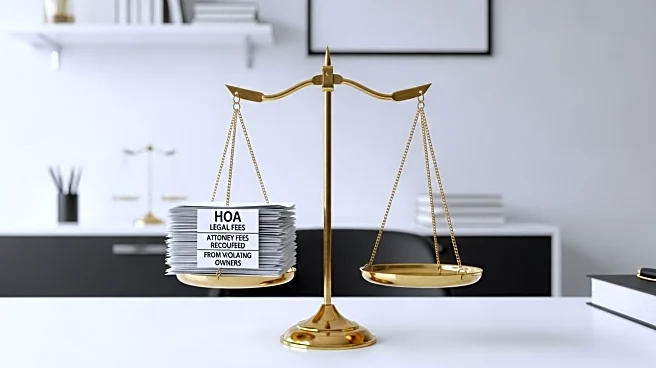What's Happening?
A recent inquiry addressed to attorneys at Goede, DeBoest & Cross has clarified a common question regarding the collection of attorney fees by homeowner associations (HOAs) in Florida. The question, posed by a resident from Boca Raton, asked whether legal fees incurred from sending enforcement letters could be charged to the violating owner. The attorneys responded that such fees are not collectible from the owner who has violated the association's rules. This clarification is significant for community associations that frequently engage legal services for enforcement actions. The firm, which specializes in community association law, emphasized that while associations can enforce rules and regulations, the costs associated with legal enforcement letters cannot be transferred to the violating party.
Why It's Important?
This clarification has important implications for homeowner associations and their financial management. Associations often rely on legal counsel to enforce community rules, and the inability to recoup these costs from violators could impact their budgets. This may lead to increased dues or assessments for all members to cover legal expenses. For homeowners, this ruling underscores the importance of understanding their rights and responsibilities within their communities. It also highlights the need for associations to consider alternative methods of enforcement that do not incur additional legal costs, or to budget for these expenses without expecting reimbursement from violators.
What's Next?
Homeowner associations may need to reassess their enforcement strategies and financial planning in light of this clarification. They might explore other avenues for compliance that do not involve legal fees, such as mediation or community service. Additionally, associations could lobby for legislative changes that would allow them to recover such costs, or they might consider revising their governing documents to include provisions for fee recovery, if legally permissible. Homeowners should stay informed about any changes in their community's enforcement policies and be proactive in complying with association rules to avoid potential conflicts.










